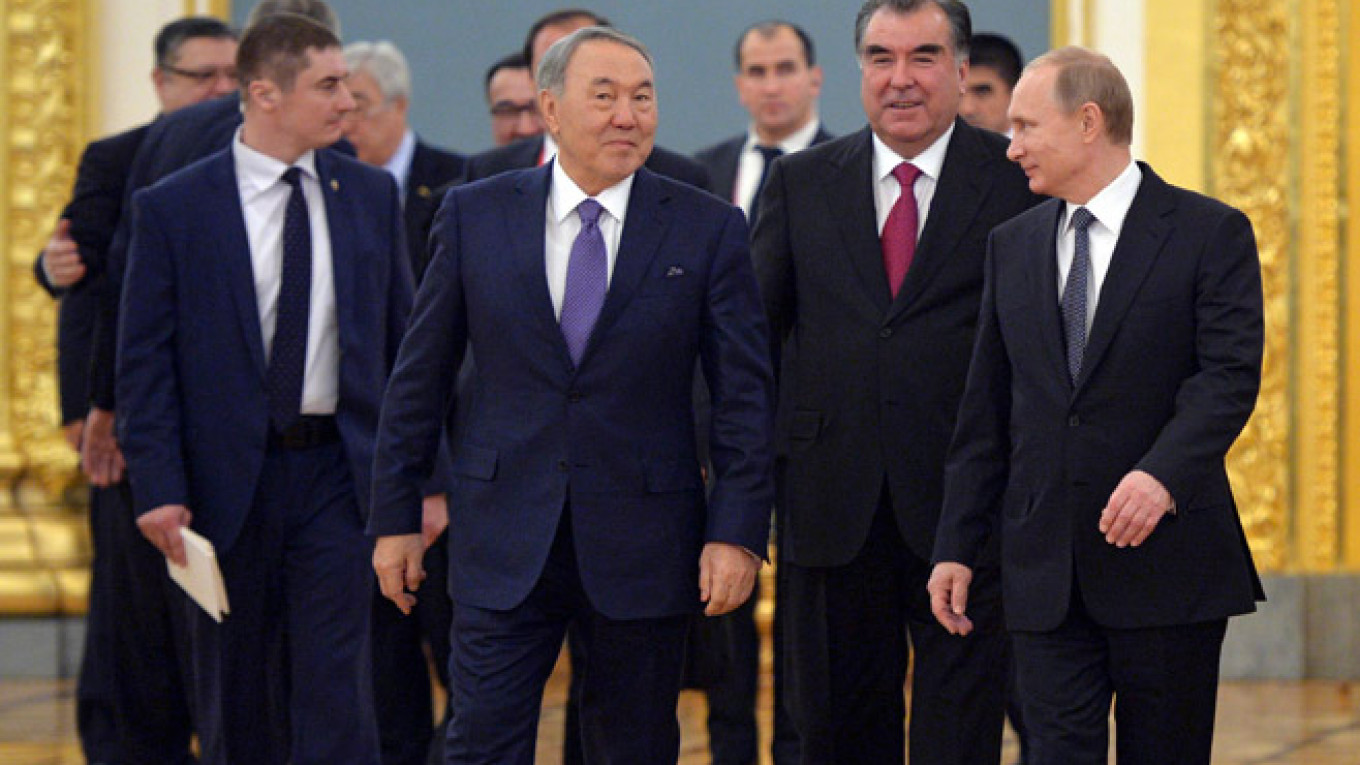Last week a video emerged from the Islamic State. Carrying the clean visuals and technical capabilities typically expected from an Islamic State production, the video presented something prior offerings hadn't yet shown. In lieu of the usual propaganda, this video opened with a pair of apparent hostages: spies captured, forced to confess their transgressions.
These two men, the group claimed, had infiltrated the ranks of the Islamic State at the behest of the Russian Federal Security Service. Instead of a successful intel operation, however, they'd been found out. They confessed their names, their origins, their operations. One was an ethnic Kazakh.
What came next remained out of their hands. It was one of the most horrific moments an Islamic State video production team has yet put forth.
Instead of the beheadings for which the Islamic State executions have become known, an Islamic State operative presented a child — an ethnic Kazakh child, one featured as a lead interview in a separate Islamic State video from late 2014. The boy couldn't have been more than 12 years old. Lifting a pistol, he took aim at the pair of kneeling moles. He fired, and the two collapsed, slain at the hands of a child soldier brainwashed by these militants of the caliphate.
There's no way to confirm that the two victims were moles or intelligence agents, or that any of their claims carried any truth whatsoever. Indeed, there are multiple voices calling into question the veracity of the entire video — the lack of kick on the gun, the lack of blood among the victims.
But even if the schematics weren't what they were made to be — even if the video stands as an elaborate, falsified hoax — the fallout will remain. And in Central Asia, the fallout could well be steep.
We can look at the past few months as a precursor to what form this fallout will likely take. After the initial video surfaced last fall showing dozens of Kazakh children studying under the gaze of Islamic State operatives, Kazakhstan promptly blocked outlets linking to the story. Moreover, Astana likely pressured Kyrgyzstan to crack down on independent outlets reporting on the video, helping dent Bishkek's democratic credentials that much further.
Over the past few months, fear-mongering about the threat that the Islamic State poses to the region has reached a crescendo. Officials in Kyrgyzstan have increased their estimates of nationals fighting with the Islamic State by more than 50 percent. Tajikistan has continued rounding up individuals it claims are aiding recruitment efforts for the organization.
Moscow has parlayed this terror-tinged hyperventilation into new security pushes in the region, attempting to retain relevance in a region that has been slipping for years. The Islamic State is also a convenient bogeymen for the region's aging autocrats, seeking to entrench their hold and strengthen their clampdown on potential oppositional voices.
As these recent videos have highlighted, there remains some truth to their concerns. Central Asian nationals have gone to fight with the Islamic State. Numbers aren't firm, but there is a discernible Central Asian presence among the organization's ranks.
But the thought that the Islamic State presents some kind of impending threat to the regimes in the region doesn't carry much weight. Central Asia remains one of the most secularized swaths of Muslim-majority areas in the world.
The video will only dent the Islamic State's appeal further. Child executions, alongside the barbarous killings before them, act more as deterrent than appeal for the majority of Central Asian nationals.
Unfortunately, Russian and Central Asian government and security officials will not see the video that way. Rather than presenting any kind of realistic response, governments will continue hyping the threat to their own end, and they have just been presented further fodder for their focus.
Casey Michel is a graduate student at Columbia University's Harriman Institute.
A Message from The Moscow Times:
Dear readers,
We are facing unprecedented challenges. Russia's Prosecutor General's Office has designated The Moscow Times as an "undesirable" organization, criminalizing our work and putting our staff at risk of prosecution. This follows our earlier unjust labeling as a "foreign agent."
These actions are direct attempts to silence independent journalism in Russia. The authorities claim our work "discredits the decisions of the Russian leadership." We see things differently: we strive to provide accurate, unbiased reporting on Russia.
We, the journalists of The Moscow Times, refuse to be silenced. But to continue our work, we need your help.
Your support, no matter how small, makes a world of difference. If you can, please support us monthly starting from just $2. It's quick to set up, and every contribution makes a significant impact.
By supporting The Moscow Times, you're defending open, independent journalism in the face of repression. Thank you for standing with us.
Remind me later.








